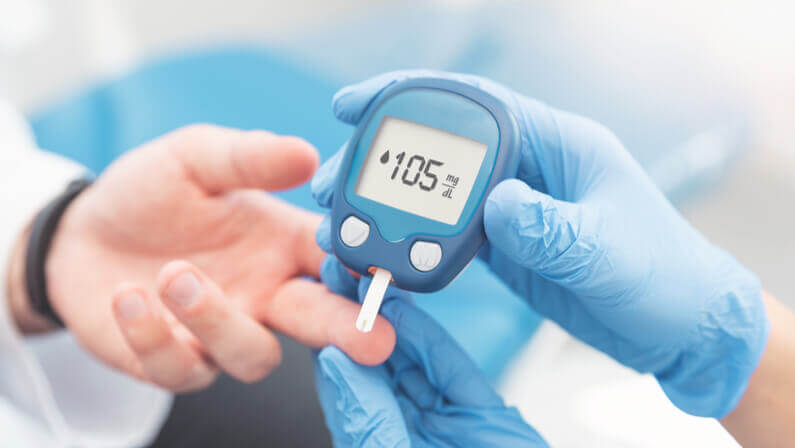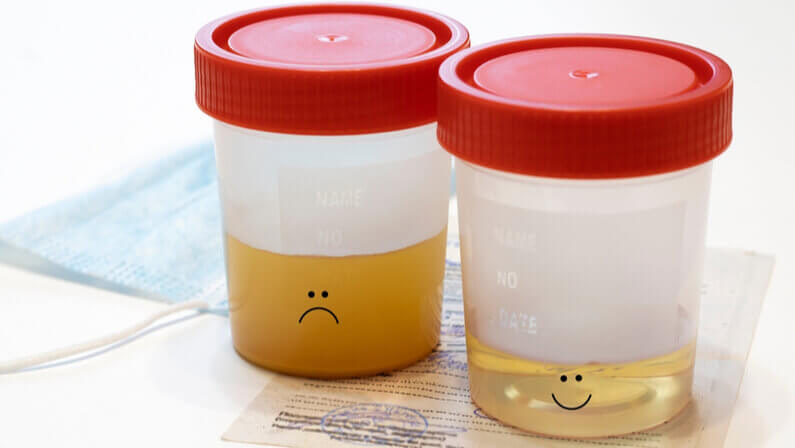One of the types of urine is cloudy urine. Cloudy urine can be a sign of a urinary tract infection (UTI). A UTI occurs when bacteria enter the urinary system and multiply in the bladder.
This article will discuss more cloudy urine and everything you need to know about it.
What is cloudy urine?

Cloudy urine is urine that has small particles in it and looks cloudy instead of clear. The causes of cloudy urine can be a number of things such as dehydration, infection, or kidney stones.
If you have cloudy urine, it is best to see a doctor find out the cause. The treatment for cloudy urine will depend on the underlying cause.
Other causes include:
- Urinary tract infection (UTI)
- Kidney stones
- Vaginal discharge
- Pregnancy
- STDs
- Diabetes mellitus
Why Is Your Urine Cloudy?
If you have cloudy urine, it could be a sign of dehydration or an infection. If you are dehydrated, your body will produce concentrated urine that can appear cloudy. Other causes of cloudy urine include UTIs, kidney stones, vaginal discharge, pregnancy, STDs, and diabetes.
Another reason why your urine might be cloudy is because of kidney stones. Kidney stones are small, hard deposits that form in your kidneys. They can cause severe pain and make it difficult to urinate.
If you have a vaginal discharge, it can also cause your urine to appear cloudy. This is because the discharge can mix with your urine and change its color.
What Causes of Cloudy Urine?
As mentioned, there are many potential causes of cloudy urine. These include the following:
Dehydration

Dehydration occurs when your body does not have enough fluids. This can happen if you do not drink enough water or if you are sweating a lot. Dehydration can cause your urine to become concentrated and appear cloudy.
Urinary Tract Infection

Infections, such as UTIs, can also cause cloudy urine. UTIs occur when bacteria enter the urinary system and multiply in the bladder. Symptoms of a UTI include cloudy urine, strong-smelling urine, and a burning sensation when urinating.
Sexually Transmitted Infection (STI)

STI is another potential cause of cloudy urine. STIs are infections that are passed from one person to another through sexual contact. Chlamydia and gonorrhea are two examples of STIs that can cause cloudy urine.
Retrograde Ejaculation

Retrograde ejaculation happens when the semen enters the bladder instead of the penis. This is also called a dry orgasm for men, and it can also be a cause of infertility.
Blood in the Urine

Similar to UTI, infection in the urinary tract can also cause cloudy urine. Blood in the urine usually comes from the kidney or bladder and is caused by an infection, injury, or tumor.
Prostate Problems

Men with an enlarged prostate may have cloudy urine due to the pressure on the bladder. Enlarged prostate is a common problem in men over the age of 50.
Vulvovaginitis

Vulvovaginitis is an inflammation of the vulva and vagina. It is a common condition that can be caused by a yeast infection, bacteria, or STI. Symptoms of vulvovaginitis include itching, burning, and cloudy urine.
Kidney stones

As mentioned earlier, kidney stones can also cause cloudy urine. Kidney stones are small, hard deposits that form in your kidneys. They can cause severe pain and make it difficult to urinate.
Pregnancy Issues

Pregnant women may have cloudy urine due to the increased amount of fluids in their bodies. As the pregnancy progresses, the uterus grows and puts pressure on the bladder, which can also cause cloudy urine.
Diet

Similar to any medical condition, a person’s diet can also play a role in causing cloudy urine. Foods that are high in sugar or salt can cause the body to produce more urine. This can lead to dehydration and make your urine appear cloudy.
Diabetes or kidney damage from diabetes

Lastly, diabetes or kidney damage from diabetes can also cause cloudy urine. When your blood sugar is high, it can damage the kidneys and make your urine appear cloudy.
What Are The Symptoms of Cloudy Urine?
Cloudy urine will show some symptoms, such as:
- Foul-smelling urine: Strong-smelling urine can be a sign of an infection.
- Changes in color: Cloudy urine may be darker than usual if it is concentrated. It may also be red or brown if there is blood in the urine.
- Pain when urinating: If you have a UTI, you may feel pain or burning when urinating. Kidney stones can also cause pain when urinating.
- Frequent urination: If you have an infection, you may feel the need to urinate more often. This is because the infection is causing inflammation and irritation in the urinary tract.
- Urgency to urinate: An urgency to urinate is a feeling that you need to urinate immediately. This can be caused by an infection or other medical conditions.
Cloudy urine is usually not a cause for concern. However, if you experience any of the above symptoms, you should see a doctor rule out any underlying medical conditions. Treatment for cloudy urine will depend on the underlying cause.
How to Treat Cloudy Urine
Treating cloudy urine will depend on the cause. If the cloudy urine is due to dehydration, you will need to drink more fluids. This will help to dilute your urine and make it less concentrated.
If it is due to an infection, you will need to see a doctor for antibiotics. Antibiotics will treat the infection and clear it up.
For kidney stones, treatment will depend on the size of the stone. Smaller stones may pass on their own. Larger stones may require surgery or other treatments.
For STIs, treatment will also depend on the specific infection. Chlamydia and gonorrhea can be treated with antibiotics. Other STIs may require different treatments.
When to See a Doctor

If you have any of the symptoms mentioned in this article, you should see a doctor as soon as possible. These symptoms may be signs of a more serious condition that requires treatment.
At Kingwood Emergency Room, we can help you diagnose cloudy urine in the best way possible. We have a wide range of sophisticated imaging equipment that can take clear pictures of your urinary tract, kidneys, and bladder. We also use the latest laboratory technology to screen for infection-causing bacteria in your urine samples.
We can also help you manage your pain and other symptoms associated with cloudy urine. Our team of experts will work closely with you to create a personalized treatment plan that meets your unique needs.
We offer a wide range of services, including medication management, physical therapy, and counseling. We also have a 24/7 hotline that you can call if you have any questions or concerns about your condition.




